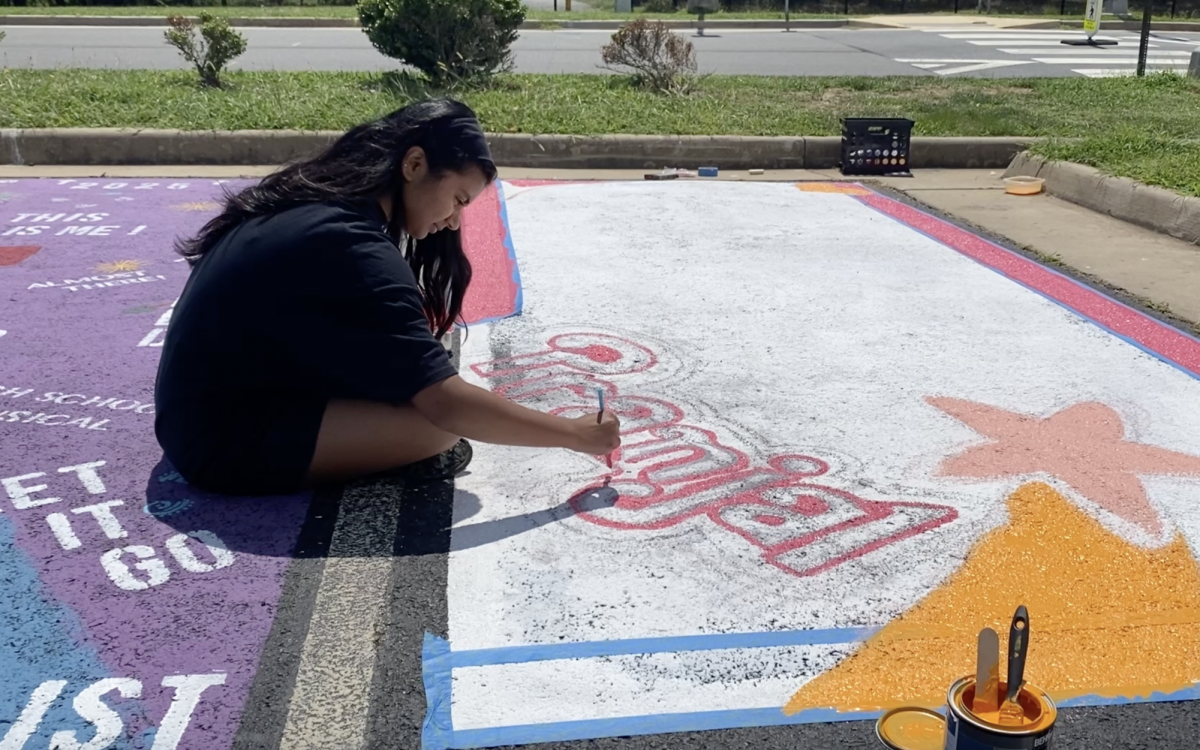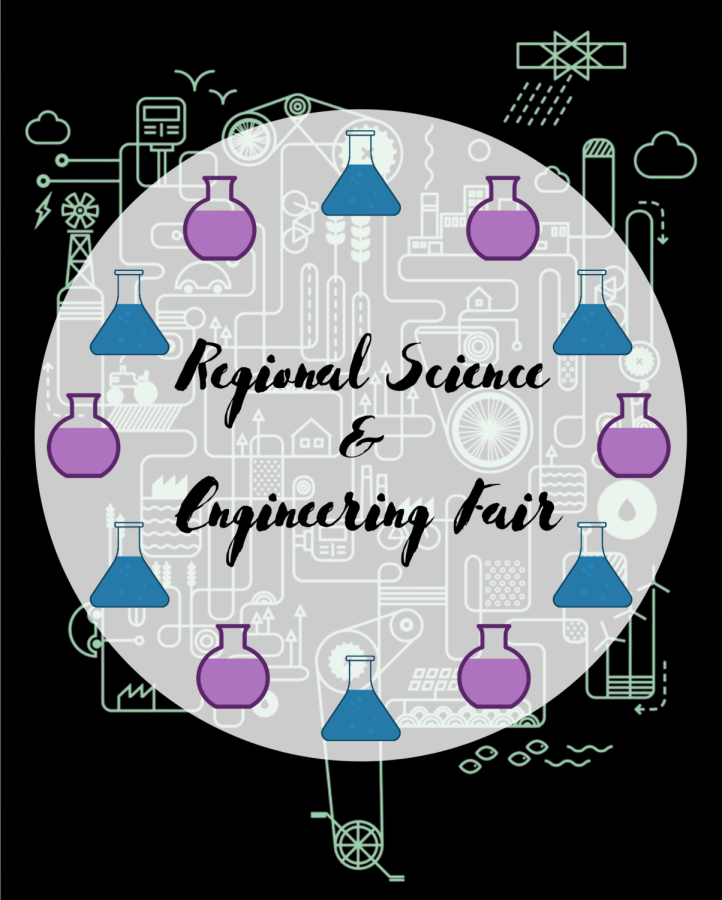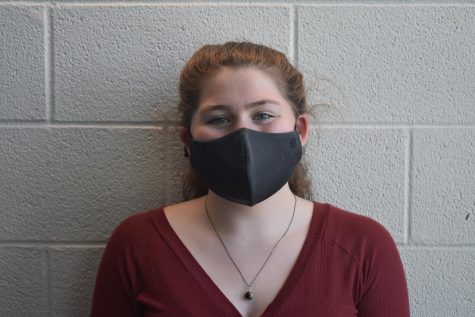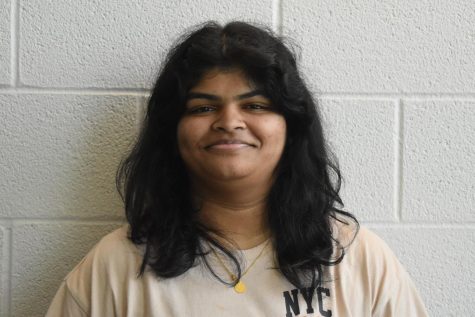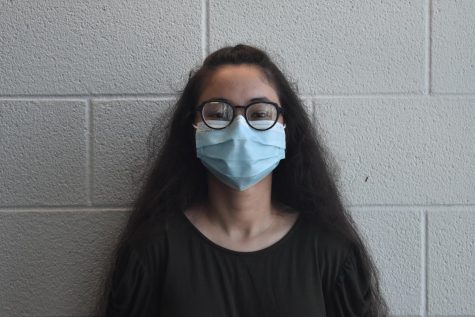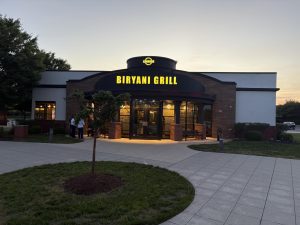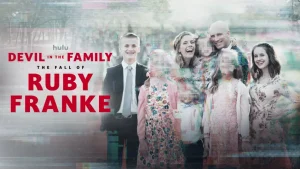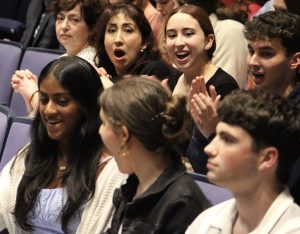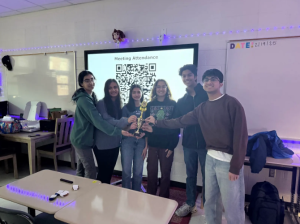Rock Ridge Hosts Regional Science and Engineering Fair
On March 17, the in-person portion of the Regional Science and Engineering Fair was held in the library. Award placements in the 16 RSEF categories were chosen prior to this event through Google Meet.
The in-person RSEF event for finalists was hosted by Rock Ridge this year in the library. Winners within their respective categories were announced prior to this event through Google Meet judging.
April 1, 2022
All year, Academies of Science student senior Raahi Chada has been working on an investigation focused on combating diseases in under-resourced areas using machine learning and artificial intelligence to automatically diagnose patients. “[Scientists] make algorithms that work really well in America, but what about in all the other places in the world?” Chada said. “I was just hoping to create a specific method that can help diseases in these areas.”
Chada was invited to the Regional Science and Engineering Fair’s finalist judging for her project, which won first place in the category of Systems Software.
Students in science department chair Mithra Marcus’ independent Science Research class have also been working towards the Regional Engineering and Science Fair — although any student, regardless of whether they are enrolled in ISR, had an opportunity to participate in the fair. Academies of Loudoun students like Chada were required to register as an academy student rather than with Rock Ridge, but all ISR students (even those who attend the academies) worked together in Marcus’ eighth block ISR class.
Contestants have been working on their research projects throughout the year, but picked up speed in winter. According to Marcus, the goal of the fair is to discover something that adds new knowledge to the field. “It’s not just doing a lab that you already conducted [or] necessarily verifying something that someone has already proven,” Marcus said. “It’s really creating a new idea to learn new information about a field.”
Marcus earned a Ph.D. in Chemistry from the University of Wisconsin-Madison, and gained knowledge which has helped her to guide her ISR students with their respective research projects. “I reflected on how this was very similar to my own process of looking through background knowledge, trying to find any gap in knowledge, designing an experiment, and following through on the experiment,” Marcus said. “Of course, there’s gonna be problems along the way, and you gotta fix those as they come, but then eventually [you get] to a place where you have created a new piece of information to share.”
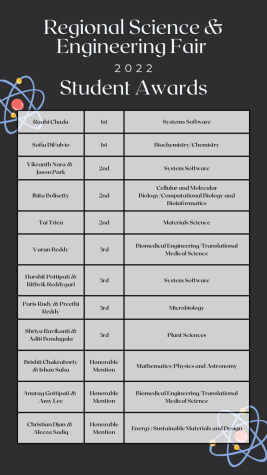
Participants were present from all LCPS high schools; this year, Rock Ridge was chosen as the host school. The finalists of the competition gathered in the library on March 17 in front of judges from the community that work in related fields, who were contacted through an LCPS email announcement. Judge Duncan Donohue is a Loudoun native who attended Loudoun Valley High School and participated in RSEF as a high schooler. Donohue became a RSEF judge back when he was in graduate school in 2005 and has continued to judge ever since. “[My experience as a judge] has been pretty much the same every year,” Donohue said. “I think the projects are a little bit more complicated, a little better every year, but they’ve always been really good. It’s great to see what the kids do.”
Donohue also believes that RSEF is a great introduction to real life. “I think [participating in science fairs] is just great; even if you don’t win, it’s great practice to present your work, which is such a huge part of science,” Donohue said. “I think students would be surprised how similar science fairs are to actual science.”
The fair is a perfect opportunity for motivated students to share and expand on their ideas as well as gain real-life experiences. “I think the benefits that come from [participating] are not just in the lab skills themselves, but in your confidence to do science,” Marcus said.
This year was set up differently than previous years due to the ongoing COVID-19 pandemic, as all competitors participated in judging through Google Meet and only the finalists from each category were invited to the in-person event that took place in the library. Additionally, students were required to create a Google Slides presentation rather than the traditional trifold setup to adjust to the virtual format.
There were 16 categories that participants chose from and those who placed first in their category were finalists and were invited to attend the in-person competition. ISR student senior Sofia DiFulvio conducted her research on the “effect of different sugars on how they affect the rate of CO2 production in yeast,” and won first place in the category of “Biochemistry/Chemistry.” “I did a lot of research on how global warming affects a lot of industries, like the bread and wine industry and fermentation industries, so by researching more into sugars and how they affect the rates of CO2 production, it could help counteract the problems of climate change on fermentation industries,” DiFulvio said.
Apart from the RSEF placing awards, there were also specialty awards given by donors with various criteria for their award, such as exceptional creativity and design, outstanding achievement in the sciences, and exemplary research on specific sciences, most of which were accompanied by monetary donations. For a breakdown of the winners and their various research products, visit this website.
Chada was the only Rock Ridge student to be chosen as one of five International Science and Engineering Fair finalists, who were chosen from the 15 first place winners of the separate categories, to qualify her for the International Science and Engineering Fair. She also earned a monetary prize of $500.
The state-level competition will be held in Norfolk, Va. at Old Dominion University on April 9.

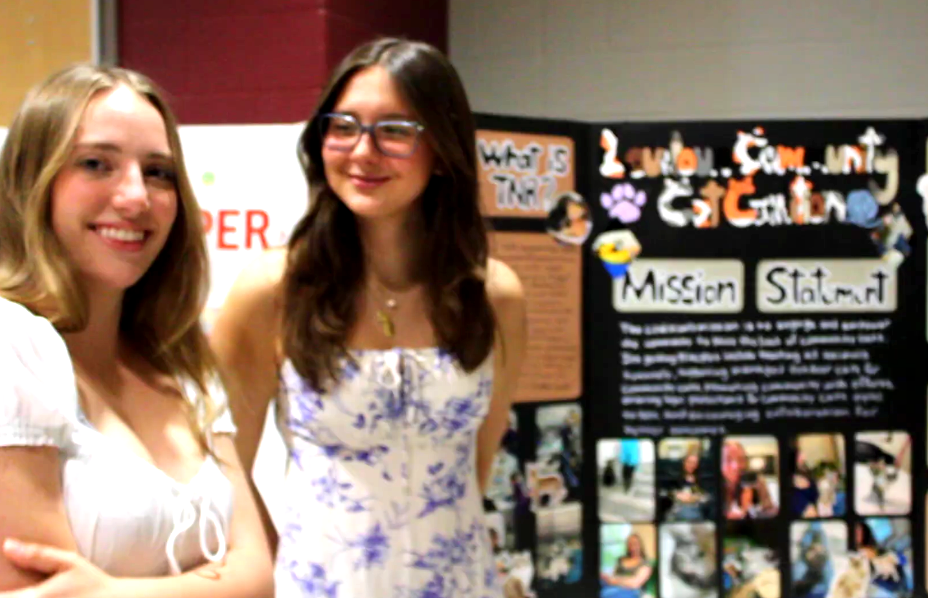
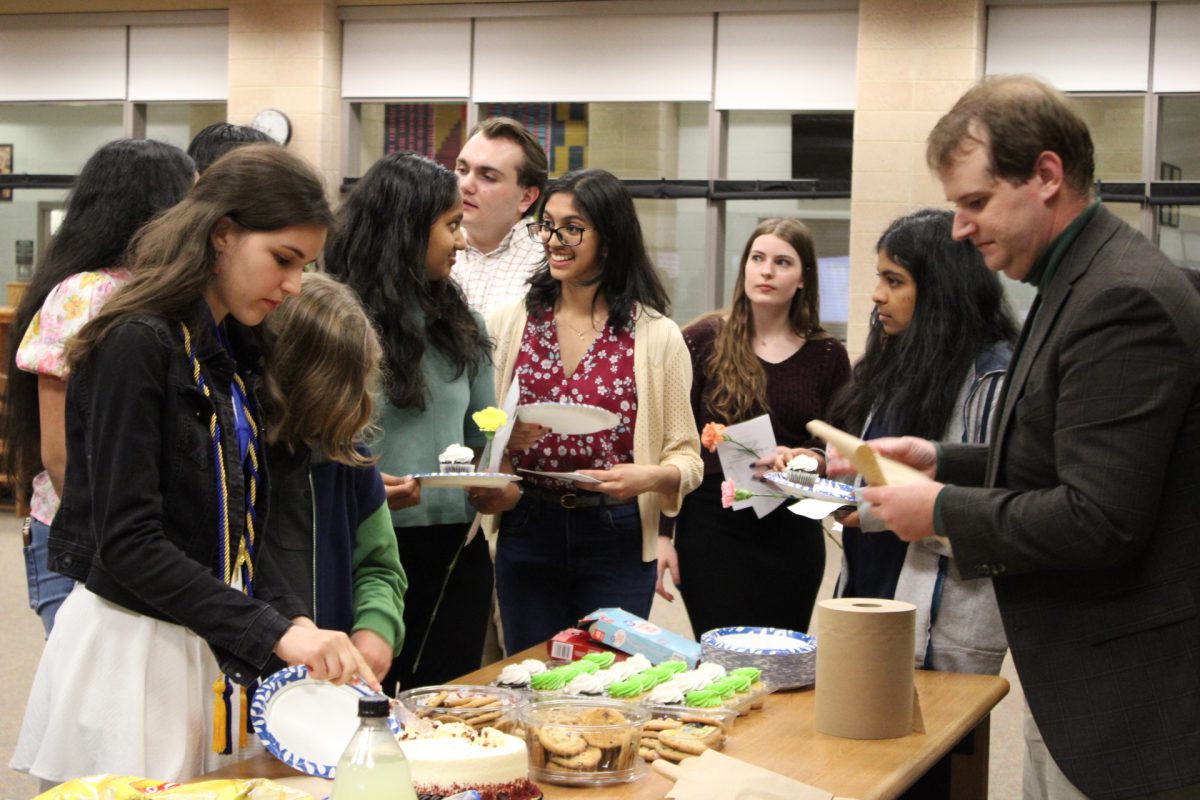





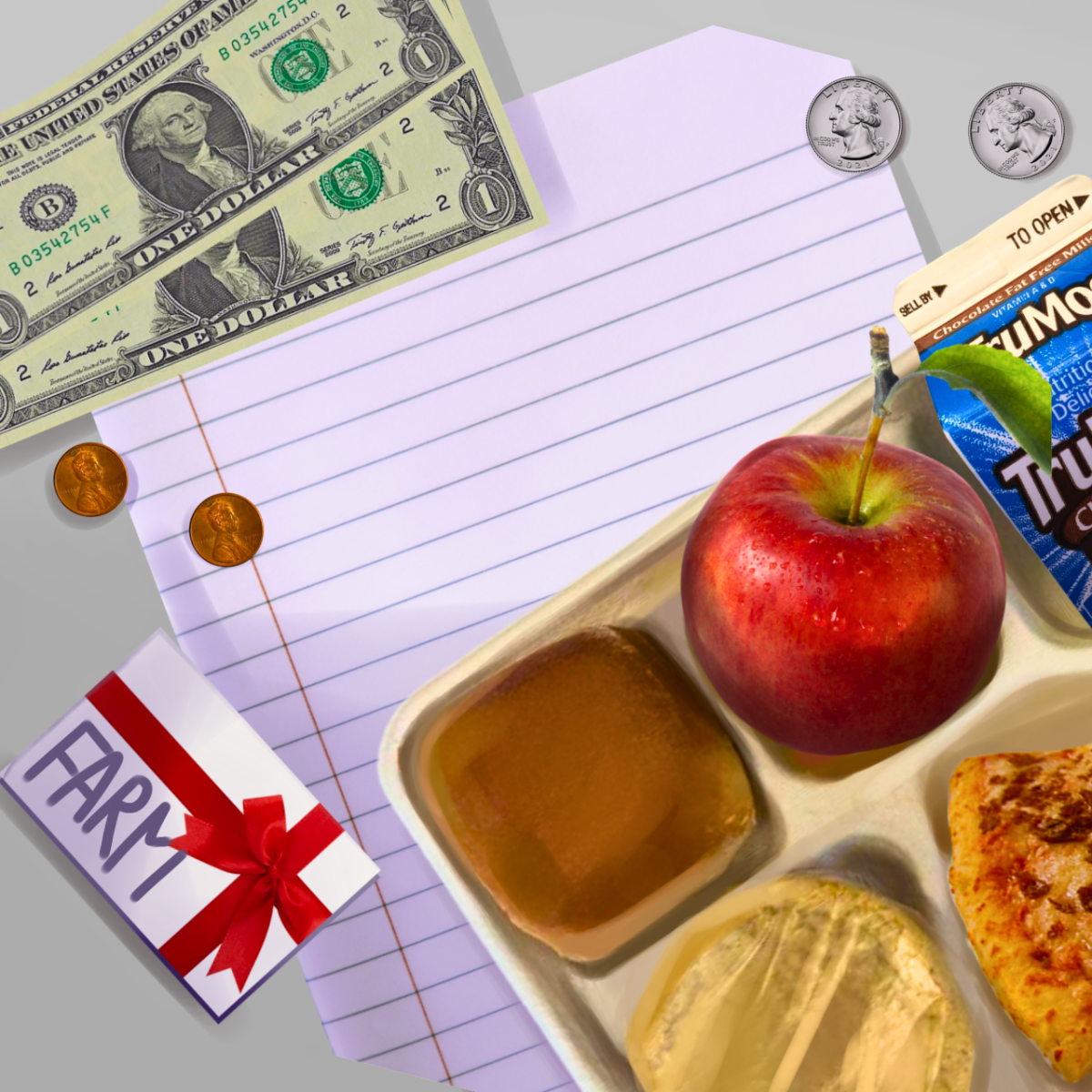
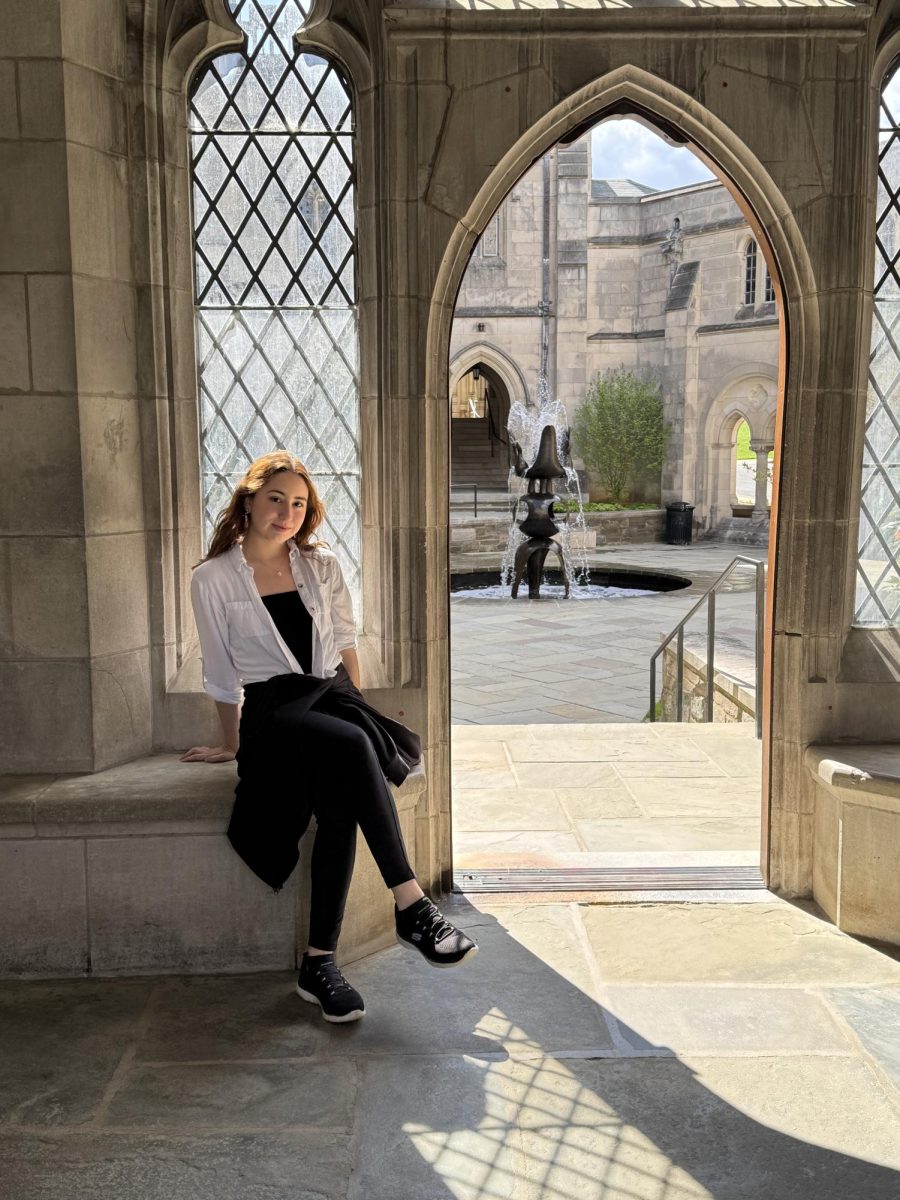
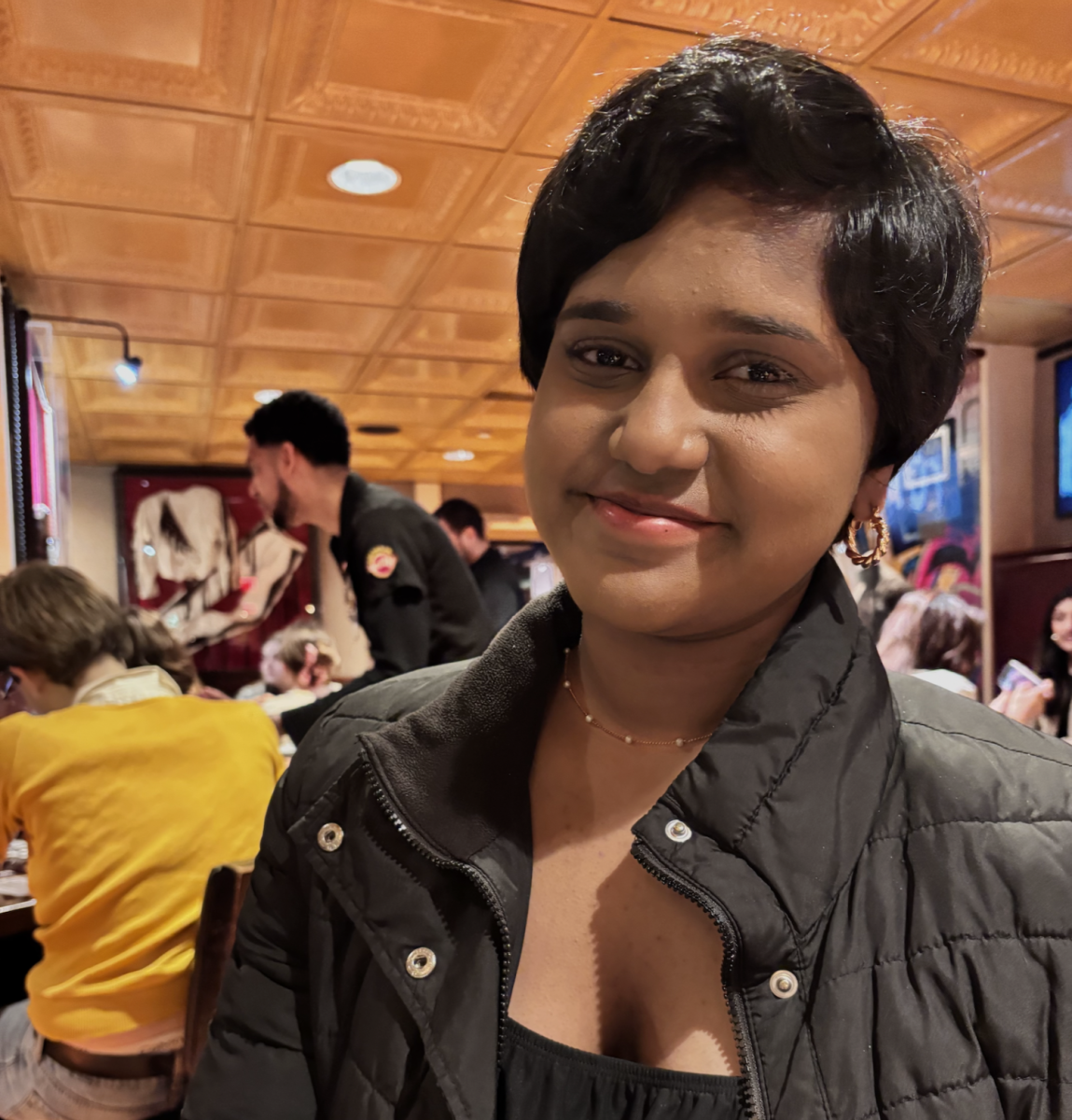


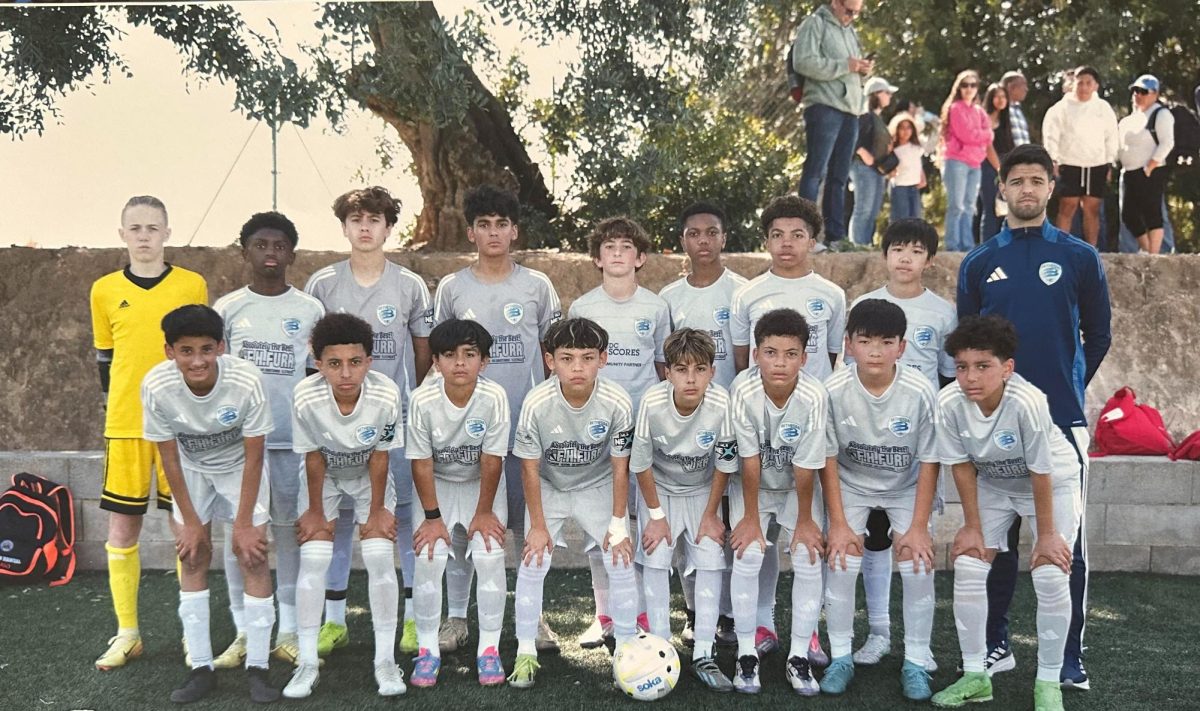



![The Phoenix varsity volleyball team lines up for the national anthem. “We were more communicative [with each other] during this game, and I feel like we kept our energy up, especially after the first set,” senior Jessica Valdov said.](https://theblazerrhs.com/wp-content/uploads/2024/10/DSC_0202-1200x800.jpg)








![Junior Alex Alkhal pitches the ball. “[I] just let it go and keep practicing so we can focus on our goal for the next game to get better as a team,” Alkhal said.](https://theblazerrhs.com/wp-content/uploads/2025/05/DSC_0013-1-1200x929.jpg)


















